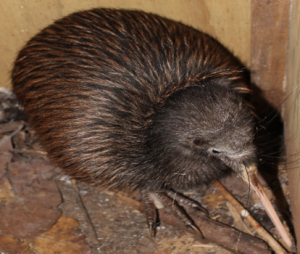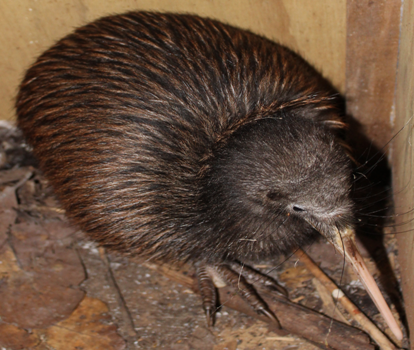“Just because kiwi are here today, does not mean they will be here for future generations”. Puketotara farmers share how they have saved their dwindling kiwi population with their hard work and determination.
This article has been prepared by Andrew Mentor (Puketotara Landcare) and Nicola Sehnert (Northern Farming Lifestyles magazine).
Puketotara Landcare Group is one of many farming communities around New Zealand aiding the protection and preservation of kiwi. With a collaboration of fourteen landowners between Kerikeri and Puketi Forest, the group has successfully increased the number of Northland brown kiwi in the area.
“We have dairy farms, sheep and beef farms and a number of lifestyle block owners making up 1800 hectares of land working together to promote the health of the kiwi population. The main objective to achieve this is predator control” says Puketotara Landcare Group coordinator Andrew Mentor.

“Five years ago we started the initiative because of the rapidly declining numbers of Northland brown kiwi with the population facing a reduction of four percent per year. They are especially vulnerable when they are juveniles, so our aim is to get them over one kilogram so they may have a better chance for survival”.
“Stoats, ferrets, feral cats and dogs are the main predators of kiwi. Possums, weasels, rats and hedgehogs also present a threat as they compete for resources. An integrated pest management approach is what we use to reduce the numbers and the most effective way to accomplish this is by trapping” he says.
Kiwi aversion courses for farm and pet dogs are run by a professional dog trainer, using correction training when the dog shows interest in a kiwi.
“Keeping dogs controlled is the owner’s responsibility so that kiwi attacks from them may be prevented. Any dog can kill a kiwi if it is not trained properly.”
Puketotara Landcare Group’s success can be observed by the number of pests removed from the area, and also by call monitoring every June.
“In the beginning, an average of eight kiwi calls per hour were recorded. Now we are up to fourteen. We report trapping and call monitoring results to the Northland Regional Council and the Kiwis for Kiwi Trust. Our group is also part of the Kiwi Coast initiative with over sixty community groups doing predator control from Whangarei Heads up to Hihi”.
“The response from the community is very positive. We have farm and lifestyle block owners running trap lines and we are continually adding members from outside the original area who are beginning to take care of pest control on their own properties.”
“We are currently looking to expand to 6000 hectares, bringing Landcorp, three more dairy farms, two sheep and beef farms and more lifestyle blocks onboard.”
“Education is important for the preservation of kiwi. We run trapping training days for interested landowners and every year we have visits from Auckland University’s environmental students. Some groups go into schools to teach children about conservation and the importance of pest control.”
“Our hope for the future is to see kiwi not just survive, but thrive. Where there is no pest control, we will see less and less of them, because as the adults die off, there will be no young to replace them”.
“Many farmers feel that conservation is an important part of farming in New Zealand and that the two can go hand in hand. We make an effort to plant up stream banks to improve water quality, keep stock out of waterways and remove pest plants to improve the health of the forest.” says Andrew.
“Because of the impact they have on kiwi, it is important to keep the pest eradication movement going. As soon as you stop and the momentum is lost, it is the kiwi population that suffers. After all, just because they are here today, it does not mean they will be here for future generations.”
To learn more about Puketotara Landcare Group, check out the Kiwi Coast Group Directory or Puketotara Landcare Facebook page



